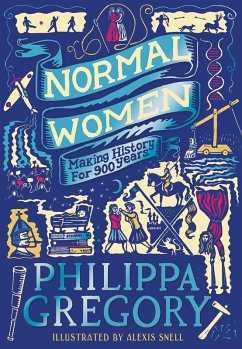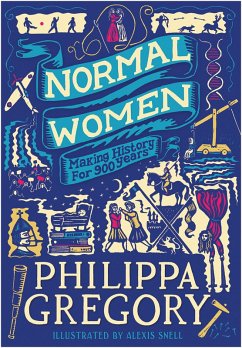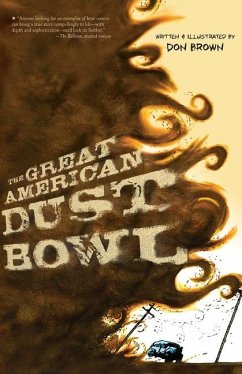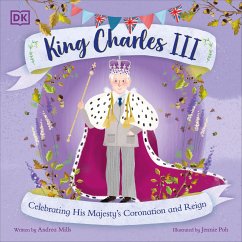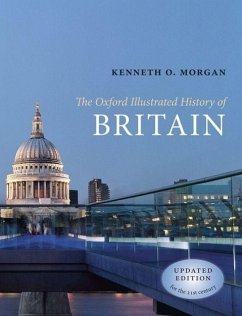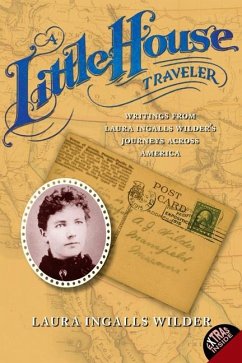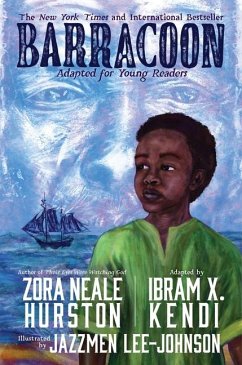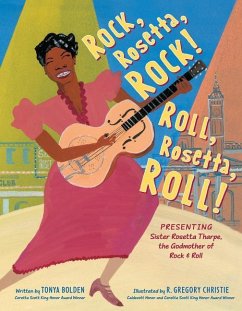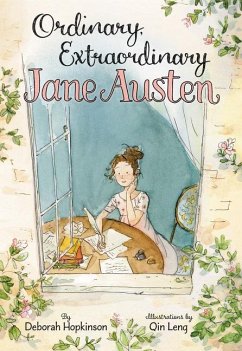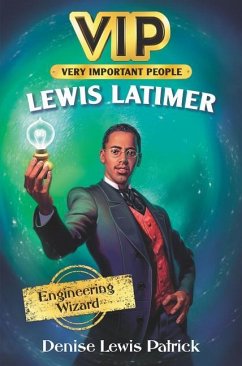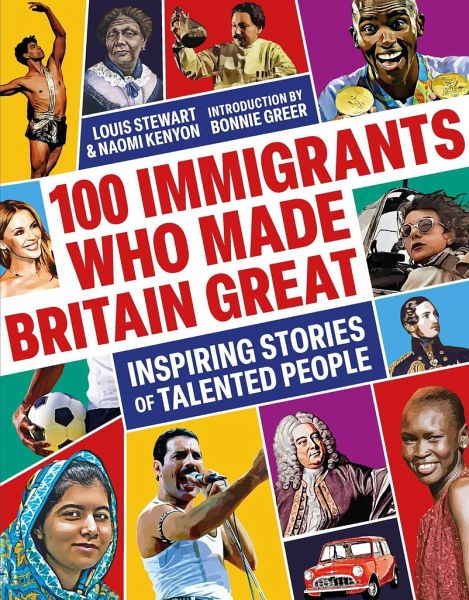
100 Immigrants Who Made Britain Great
Inspiring Stories of Talented People
Illustrator: Kenyon, Naomi
Versandkostenfrei!
Versandfertig in über 4 Wochen
26,99 €
inkl. MwSt.
Weitere Ausgaben:

PAYBACK Punkte
13 °P sammeln!
This beautiful, illustrated book celebrates the lives of talented individuals who came to the UK and built a brilliant new life here. From Hans Holbein to Mo Farah, discover the real stories of people recognisable to children and adults alike, who have shaped our lives from business to food to medicine. Discover how: • Refugee Michael Marks founded Marks & Spencer • Banker Charles Yerkes built the London Underground • Scientist Ernst Chain developed life-saving penicillin • Activist Claudia Jones launched the Notting Hill Carnival Each individual is celebrated with an original illustr...
This beautiful, illustrated book celebrates the lives of talented individuals who came to the UK and built a brilliant new life here. From Hans Holbein to Mo Farah, discover the real stories of people recognisable to children and adults alike, who have shaped our lives from business to food to medicine. Discover how: • Refugee Michael Marks founded Marks & Spencer • Banker Charles Yerkes built the London Underground • Scientist Ernst Chain developed life-saving penicillin • Activist Claudia Jones launched the Notting Hill Carnival Each individual is celebrated with an original illustration and a short biography. Many showed grit to make their mark on Britain after fleeing persecution or war abroad. All achieved their success through talent and hard work. 100 Immigrants Who Made Britain Great is a great gift for any teenager curious about how modern Britain came into being. This book is an ideal accompaniment to Good Night Stories for Rebel Girls, 100 Great Black Britons and Amazing Muslims Who Changed the World. Excellent for Black History Month, it's a great source of inspiring stories around immigration all year round. Here are the inspirational individuals featured in 100 Immigrants Who Made Britain Great: Ade Adepitan, athlete and TV presenter Alan Yau, restaurateur Alec Issigonis, car designer Alek Wek, model Alf Dubs, politician András Schiff, pianist and conductor Anish Kapoor, sculptor Anna Freud, psychoanalyst Arthur Wharton, footballer Barbara Cooper, RAF officer Bernard Katz, physician Bushra Nasir, headteacher Carlos Acosta, ballet dancer Caroline Herschel, astronomer Charles Kao, physicist and engineer Charles Yerkes, financier Charlotte Auerbach, geneticist Claudia Jones, journalist and activist Claus Moser, statistician Connie Mark, campaigner Deborah Doniach, immunologist Dennis Gabor, physicist and engineer Dietrich Küchemann, engineer Doreen Lawrence, campaigner Edith Bülbring, scientist Emma Orczy, novelist and playwright Erich Reich, entrepreneur Ernst Chain, scientist Ernst Gombrich, author Eugène Rimmel, perfumer Fanny Eaton, model Freddie Mercury, pop singer George Frideric Handel, composer George Weidenfeld, publisher Gina Miller, entrepreneur and activist Graeme Hick, cricketer Hans Holbein, painter Hans Krebs, scientist Harry Gordon Selfridge, retailer Henry Wellcome, scientist Ida Copeland, politician Ida Freund, academic Ira Aldridge, actor and playwright Iris Murdoch, novelist Isaiah Berlin, philosopher Jacob Epstein, sculptor Jimi Hendrix, musician Joan Armatrading, musician Johanna Weber, engineer John Barnes, footballer John Edmonstone, footballer Joseph Conrad, author Joseph Rotblat, physicist Judith Kerr, author Karan Bilimoria, entrepreneur Karel Kuttelwascher, fighter pilot Krystyna Skarbek, wartime spy Kylie Minogue, pop singer Lew Grade, broadcaster Lucian Freud, painter Ludwig Goldscheider, publisher Ludwig Guttmann, neurologist Magdi Yacoub, heart surgeon Malala Yousafzai, campaigner Marc Isambard Brunel, engineer Margaret Busby, publisher and editor Marie Tussaud, entrepreneur Mary Prince, campaigner Mary Seacole, nurse Maureen Dunlop de Popp, pilot Michael Marks, retailer Mo Farah, athlete Mona Hatoum, artist Montague Burton, retailer Moses Montefiore, banker Nasser Hussain, cricketer Oscar Nemon, scupltor Parveen Kumar, doctor Peter Porter, poet Prince Albert, royal consort Raheem Sterling, footballer Richard Rogers, architect Sake Dean Mahomed, surgeon Shanta Pathak, entrepreneur Sislin Fay Allen, police officer Solly Zuckerman, military adviser Stelios Haji-Ioannou, entrepreneur Steve Shirley, entrepreneur Stuart Hall, academic TS Eliot, poet Tessa Sanderson, athlete Trevor McDonald, newscaster Valerie Amos, lawyer and politician Venkatraman Ramakrishnan, biologist Vera Atkins, wartime spy Violette Szabo, wartime spy William Butement, scientist Yasmin Qureshi, politician and barrister Yvonne Thompson, entrepreneur Zaha Hadid, architect The introduction is by Bonnie Greer, the Chicago-born playwright and cultural commentator. Buy the book and start reading




